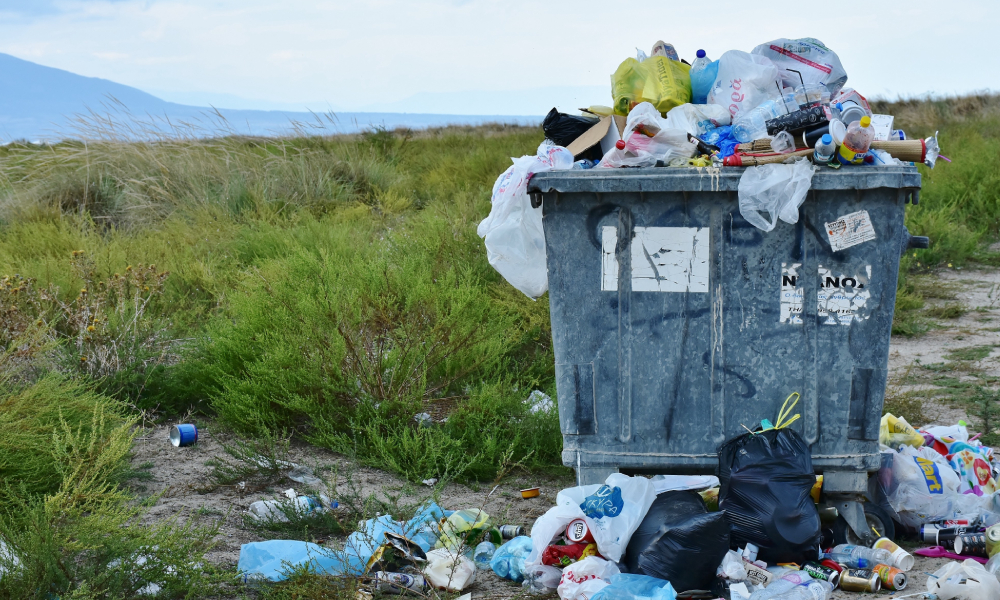
Image Credits: Pixabay (Representative)
Menstrual Waste Products Adding To Plastic Pollution, Improper Segregation Poses Health Risks For Workers: Study
Writer: Ankita Singh
A literature lover who likes delving deeper into a wide range of societal issues and expresses her opinions about the same. Keeps looking for best-read recommendations while enjoying her coffee and tea.
India, 4 Jun 2021 12:51 PM GMT
Editor : Madhusree Goswami |
A mountain girl trying to make it big in the city. She loves to travel and explore and hence keen on doing on-ground stories. Giving the crux of the matter through her editing skills is her way to pay back the journalism its due credit.
Creatives : Ankita Singh
A literature lover who likes delving deeper into a wide range of societal issues and expresses her opinions about the same. Keeps looking for best-read recommendations while enjoying her coffee and tea.
As per the study, a single commercially available non-organic sanitary pad takes up to 250-800 years to decompose or may even never decompose at all.
About 12.3 billion or 113,000 tonnes of used sanitary pads are dumped in landfills in India every year, adding to the already existing plastic pollution in the country, according to a new study titled 'Menstrual Products and their Disposal'.
The study was released by the environmental group Toxics Link. It has also raised serious concerns over improper disposal methods and non-segregation of menstrual waste from household waste, which leads to unhygienic working conditions for waste workers, and at the same time, poses the risk of infectious diseases among them.
As per the study, a single commercially available non-organic sanitary pad takes up to 250-800 years to decompose or may even never decompose at all. Each pad contains plastic which is equivalent to around four plastic bags.
The survey indicates that disposable sanitary napkins are the most popular choice among women. Hence, it results in huge amounts of waste.
Further, it reveals that most women are unaware that the commonly available disposable sanitary napkins constitute 90 per cent plastic, and they are adding to the plastic crisis.
As per the study, at present, there is no proper management or recycling of this non-biodegradable waste. As a result, it ends up in landfills and stays there for centuries and over the years adds to the micro-plastic pollution.
The study has also raised strong concerns over the use of small-scale incinerators, which have emerged as a favoured disposal technology. These incinerators are being installed in various places such as rural schools, colleges, hostels etc., as there are no minimum standards set for using them.
Another major concern that has been raised is the presence of several harmful chemicals in the products which may create health problems.
"Most of the inorganic sanitary pads contain SAP, VOCs, phthalates etc., which can cause adverse health impacts, including cancer. But shockingly, most females are unaware about it", shares Dr Aakanksha Mehrotra, one of the researchers as reported by The New Indian Express.
Menstrual waste is covered under Solid Waste Rules. However, the Toxics Link report found that there are no systems to manage it.
"As per the rules and the manual on MSW, sanitary waste needs to be wrapped securely in the pouches provided by the manufacturer or brand owners and handed over separately to the waste collector to avoid manual handling of such waste. But clearly, there is no implementation of EPR and there is a lack of any initiative from companies to address the issue of menstrual waste," pointed out the study team at Toxics Link.
The waste workers who were interviewed during the survey in Delhi disclosed that sanitary waste is 100 per cent non-segregated at the municipal level. Also, most of the waste handlers are forced to work in unhygienic conditions, handling sanitary waste without adequate PPE.
Even though there are alternatives available in the market, like organic pads, menstrual cups etc., and the study reveals that the majority (88 per cent of the respondents) are willing to switch to environment-friendly alternatives, the problem is that such products aren't easily available.
The high prices of these products is a deterrent. Around 39 per cent of women throw their sanitary napkins in common household bins after wrapping them, while 57.5 per cent of women have no idea about the menstrual waste stream or the after-effects of disposing of the products.
As per the data, about 89 per cent of females believe menstrual waste to be a concerning topic, though most of them lack complete knowledge about the subject.
Also Read: Industrial Activity, Auto Sales Severely Hit As Job Losses Mounts
 All section
All section














